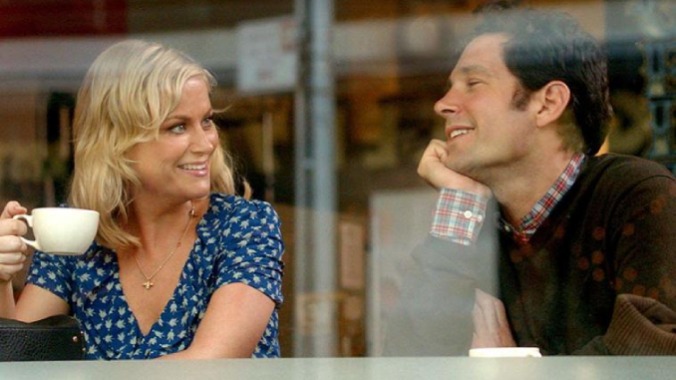You Can Say That Again: They Came Together Is One of the Funniest Spoof Movies Ever Made

When looking at the output of 21st-century spoof movies, it may be inaccurate to say there’s been an overall dearth, but it’s absolutely fair to say that there’s been a real scarcity of quality spoofs. Some notable entries fit more into the satire space, such as Tropic Thunder, Burn After Reading and Zoolander, but they’re outside the criteria of movies that directly parody genre tropes. There are some memorable ones of those too; just look at Walk Hard: The Dewey Cox Story, Not Another Teen Movie and a handful of other titles that found success in cleverly poking fun at particular clichés.
However, at the mention of “spoof movie,” most people’s minds likely wander to the Scary Movie franchise, which has a few decent entries of its own, or to the oeuvre of Jason Friedberg and Aaron Seltzer, the creative duo who co-wrote the first Scary Movie and went on to develop an empire of infamously cheap and lazy parody films in the late 2000s. They’re responsible for the likes of Meet the Spartans, Vampires Suck and Disaster Movie, among others—films so unclever in their mindless pop-culture riffing that they all but obliterated the perception of the parody film in the eyes of mainstream viewers. In that aftermath, many spoof films of the last 15 years have either failed miserably or been released into relative obscurity. The latter would be the case for director David Wain’s They Came Together, which was given a quiet day-and-date release with a limited theatrical run in the summer of 2014.
This was not new ground for Wain. The release of his cult classic summer camp movie parody Wet Hot American Summer was given similar treatment back in 2001 and only found an audience as the years wore on. The difference is that, in 2001, the likes of Paul Rudd and Amy Poehler (among an array of other now-ultra-successful stars) wouldn’t be expected to pull audiences. In 2014, Rudd and Poehler top-lining a silly romantic comedy spoof with an abundance of other recognizable comedic performers seemed like something that would turn at least a few more heads. Nevertheless, They Came Together largely drifted off into anonymity, only really reaching ultra-nerdy comedy fans or those who happened to stumble across it. And yet, it too has had its merits proven out over time: It’s squarely in the running as one of the funniest movies released since 2000.
-

-

-

-

-

-

-

-

-

-

-

-

-

-

-

-

-

-

-

-

-

-

-

-

-

-

-

-

-

-

-

-

-

-

-

-

-

-

-

-








































